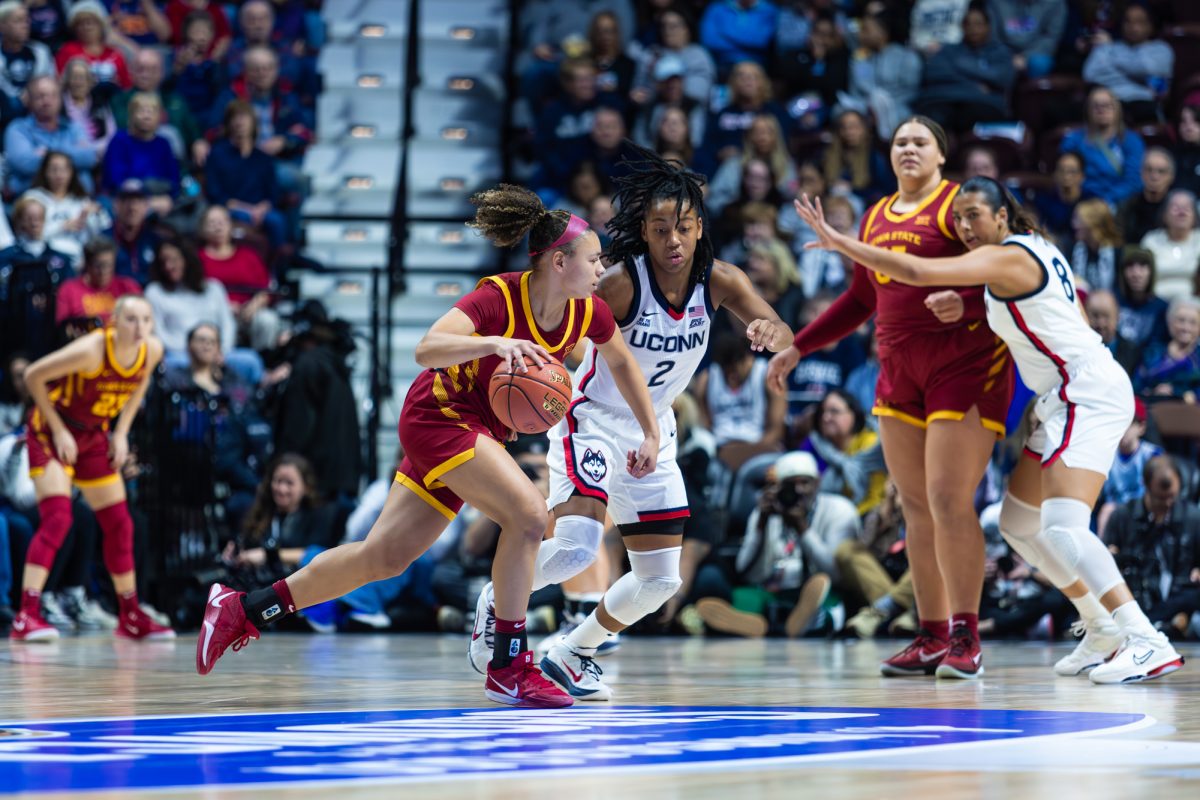Rove bars recording from U of I lecture
February 15, 2008
Karl Rove will speak at the University of Iowa on Sunday, but under conditions that inhibit media access.
The compromise reached between Rove and the university’s lecture committee was that reporters could use recording equipment and flash photography only during the first five minutes of the lecture.
Rove, former deputy chief of staff for President George W. Bush, originally did not want media personnel to attend the event at all, said Sharon Benzoni, student and co-chairwoman of the lecture committee at the University of Iowa.
However, she said, the lecture board informed him that excluding the media simply was not possible at a public event on a university campus.
She said it took some time for the lecture committee and Rove to work out a contract.
“We have some very strict guidelines about what we require from our speakers,” she said.
One of these guidelines, she said, was that there has to be a classroom discussion or question-and-answer session with the student body.
Rove is fulfilling this requirement by having a question-and-answer session during the last part of the event that follows an interview with Frank Durham, associate professor of journalism and mass communication at the University of Iowa.
Benzoni said part of Rove’s appeal was that he is a well-known conservative and the college has been getting calls to bring in more conservative speakers.
“This is a fairly liberal college, and we tend to have a fairly liberal lecture committee,” she said.
So, she said, when they started looking for someone to speak, Rove seemed like a good choice because he was part of the Bush administration and has played a role in shaping current American politics.
Durham, the professor slated to interview Rove, is known to be on the opposite end of the political spectrum, Benzoni said. But he said that, as a journalist, he will be able to be objective and still ask the tough questions some members of the audience will want to hear.
Pat Miller, director of the lectures program at Iowa State, said a lot of speakers have restrictive contracts and this type of stipulation is not new, but it is strange that Rove would not allow recorders during the question-and-answer portion.
“I’ve been doing this for 27 years, and this is unique,” Miller said.
She said a concerns many speakers have is that their material will be used out of context.
Rove will be paid $40,000, which will come from student activities fees at the University of Iowa and private funding from the F. Wendell Miller Fund.
Benzoni said University of Iowa TV is supposed to be recording the whole presentation for broadcast at a later date, but there are still some issues with contractual obligations that need to be worked out.
Rich Adams, staff member at UITV, said he wasn’t sure if they had worked anything out with Rove, so they may not be able to record the entire lecture.
Lyombe Eko, associate professor of journalism and mass communication at the University of Iowa, wrote in an e-mail that he believed “Rove was using the media-control reflex that he honed so well in the White House.”
Eko wrote Rove could also be benefiting commercially by controlling what parts of his speeches can or cannot be broadcast to media.
“He wants to commercialize his experience in government,” Eko wrote.
“He will soon probably sign a multimedia deal for his memoirs. He does not want the juiciest tidbits in the media before the book is out.
“Rove has no qualms putting his contract above free speech. To him, copyright and contract law take precedence over the First Amendment, at least in this instance.”






